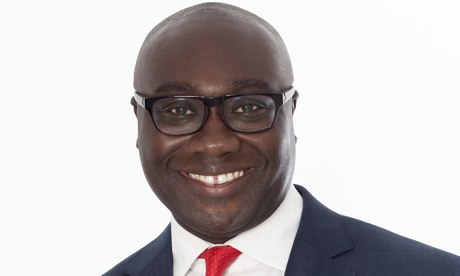
“I WORK for the BBC (British Broadcasting Corporation), but now I am going to show my true colours,” screamed a smiling but earnest Kumla Dumor, surrounded by fellow Ghanaians in Accra, as he unbuttoned his shirt – just falling short of tearing it off – to reveal a T-shirt emblazoned with the national colours of Ghana, his fatherland, in front of BBC cameras ahead of the 2010 World Cup football finals in South Africa.
Conway Tutani Echoes
There was no better patriot and professional than Dumor, the Ghanaian-born BBC presenter who died suddenly last week at the peak of his powers and career. Dumor, who was 41 years old, died of cardiac arrest — or heart attack — at his London base.
Many people — including myself — were deeply saddened by the suddenness of it all and the enormity and immeasurability of the loss. Dumor was truly professional and a source of pride to the continent.
Dumor was born in 1972, the year the Watergate Scandal involving political dirty tricks against the then opposition Democratic Party broke out in the United States, resulting in disgraced President Richard Nixon resigning two years later after mounting and uncontestable evidence emerged that he had tried to cover up the scam engineered by his inner circle in his ruling Republican Party.
Washington Post journalists Carl Bernstein and Bob Woodward led the crusade to expose Nixon. That was the zenith of the watchdog role of the media in exposing abuse of State power and institutions. Any modern-day examples?
Although I did not know him personally, Dumor was always a more than welcome presence in my living room whenever he read BBC-TV news and gave other presentations.
He was so erudite and communicative about it. His journalism was not of the bragging, gloating, shallow kind as exhibited by many locally and abroad.
- Chamisa under fire over US$120K donation
- Mavhunga puts DeMbare into Chibuku quarterfinals
- Pension funds bet on Cabora Bassa oilfields
- Councils defy govt fire tender directive
Keep Reading
There has been a tendency to celebrate mediocrity. Even journalists on Chinese State TV don’t grovel to that sickening extent to which some of our journalists do.
They could learn a thing or two from Dumor who proved adept at his trade by showing intelligence, maturity and balance.
All is not lost because some among the emerging crop of local journalists have got what it takes to make it big if only they are allowed to unleash their talent, but the system won’t allow that.
Dumor was truly a man of the world. He made one proud to be African. He did not have a superiority or inferiority complex. With his natural ability, he did not have to prove anything to anyone.
Dumor made journalism look easy and effortless because he was so talented and highly qualified. Not that in his case qualifications mattered that much because qualification without aptitude or natural flair does not on its own count; what matters is finding your vocation, your calling.
In fact, Dumor dropped out of medical school at the University of Jos in Nigeria to read psychology and sociology in his native Ghana after realising that medicine was not his field. He then proceeded to Harvard University in the US, where he attained a Master’s degree in Public Administration.
With that academic background, he could as well have risen to BBC chief executive officer, but he chose journalism.
Dumor brought knowledge and context to issues, not half-baked, quasi-ideological claptrap, insincere, empty and pretentious language. He was the living fulfilment of journalism’s role of informing, educating and entertaining society.
Could there be something about Ghana? This is the country which gave the world Kwame Nkrumah, who led the first black African nation to independence in 1957, but was toppled mainly because of dirty tricks by the West when Africa was a political playground between the West and the East during the Cold War. The good, the bad and the ugly has to be mentioned without fear or favour.
Conquerors throughout history and the world over find it hard to let go. The 2008 general election in Zimbabwe is a case in point when the system turned defeat into victory.
Ghana is the the country which gave the world Kofi Annan, who became the first black African United Nations Secretary-General in 1997. Flight Lieutenant Jerry Rawlings played no small part in this.
Rawlings initially came to power in 1979 by leading a military coup in “a housecleaning exercise”, whose aim was to purge Ghanaian society of rampant corruption and social injustices.
In Zimbabwe, the government is standing akimbo while some company executives are paying themselves US$230 000 a month.
Rawlings lived up to his promise to hand power back to civilian rule in response to demands for a more democratic process concerning the governing of the country. He did not stay a day longer.
Ghana needed that shock treatment to find equilibrium because the liberators had become the oppressors and exploiters. Coming from such a stable country enhanced Annan’s credentials to head the UN.
The political stability now prevailing in Ghana can be sustained because the nation is now at peace with itself. That is why it has been churning out giants like Dumor.
Ghanaian rulers do not tinge everything with rancorous ideology, but face their situation head-on. Ghana and Zimbabwe are now worlds apart. Corruption cannot be mistaken for sanctions.
Rest in peace, Dumor, a true patriot and professional!











